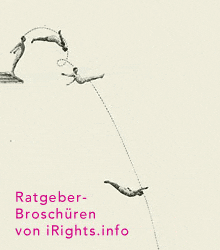Öffentlich-rechtliche Archive: Reader „Digital Public Spaces” erschienen
Während in Deutschland über Haushaltsabgabe, Depublikation und Verweildauerkonzepte diskutiert wird, arbeitet die BBC unter dem Titel „Digital Public Space” zusammen mit weiteren öffentlichen Einrichtungen wie Museen nicht nur an einem digitalen Archiv, sondern nebenbei auch an ihrer Neuerfindung im Netz.
BBC-Archiventwickler Bill Thompson gehört auch zu den Herausgebern des Readers „Digital Public Spaces”, der im Rahmen der Konferenz Future Everything erschienen ist. Paula Le Dieu (Mozilla Foundation) schreibt darin:
The Digital Public Space was born of years of failed attempts to make significant volumes of archival material available on the web. Those of us working within efforts to provide digital access to the great publicly funded cultural collections have time and again failed to crack the digitisation, rights, mission triumvirate.
Die Veröffentlichung ist eine Art Ideensammlung und versammelt programmatische Beiträge zu einem ambitionierten Vorhaben, dessen Ausgang noch offen ist. Die Herausgeber schreiben:
The goal, therefore, is to look at the Digital Public Space from all angles, to challenge and refine the core ideas, explore the current and future technologies that could sustain it, and ask about its real value to artists, institutions and the public whom it is supposed to serve.
One question is whether it can release public value or simply whether it offers another way for larger institutions and corporations that hold rights to assert their hegemony, and lock the public out, and explore the technological barriers that stand in the way of delivering a genuinely public online service.
Hier gibt es den Reader als PDF.







Was sagen Sie dazu?